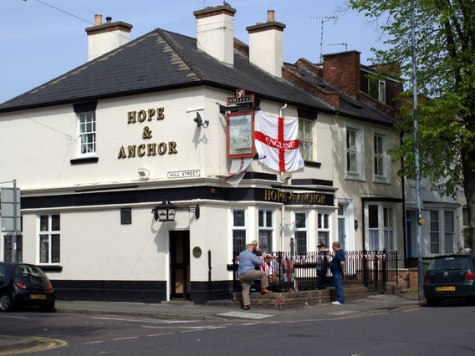I have been banging the drum for a long time now about how successive governments have let down the leisure and hospitality industry by refusing to ‘think outside the box.’ By ‘thinking outside the box’, I am referring primarily to Value Added Tax – or VAT as we all know it.
Certain sectors of the hospitality and leisure industry, such as pubs, have been in the doldrums for over a decade. Indeed, a massive 10,000 have closed since 2002. This is particularly sad because part of our British culture is being destroyed before our very eyes, yet our political class seem at best ambivalent at best towards this loss.
I become livid when I hear politicians try to justify the closures with excuses such as ‘oh well it’s the market’ or ‘people’s tastes have changed’ because both statements are blatant drivel.
The reality is that senseless and harmful legislation, such as the draconian blanket smoking ban in 2007, has led to a dwindling footfall and declining revenue. Indeed, it is the same politicians that use the ‘market’ or ‘tastes’ excuses who told us that more people would actually go to pubs after the ban came into force. However, on the contrary, over fifty a week on average were closing in the first year of the smoking ban.
Successive governments have also allowed the pub industry to become dominated by a cartel of large companies who are bleeding the industry dry. These companies, known as PubCos, are making running a pub such an unprofitable job that tenants are simply walking away because they can’t afford to live. The tenants are tied by the PubCos into selling their alcohol for inflated prices with very little profit margin, thus making them uncompetitive and forcing punters to look elsewhere.
So bad has the relationship between PubCos and tenants become that the government has been forced to intervene, admit that self-regulation in this area has failed, and force the PubCos to sign a core code which is designed to ensure fairness. However, unfortunately, it’s too little too late for many.
Finally, pubs are facing unfair competition from supermarkets, which in some cases are selling alcohol for less than the price of bottled water, thus leaving making it impossible for pubs to compete on price. The ‘playing field’ is further tilted in favour of the supermarkets if one considers that although they do pay VAT on alcohol, they can claim back the tax if they sell it at cost or below cost. It is virtually an incentive to put pubs out of business. Additionally, pubs have to pay VAT on food, yet supermarkets do not.
It is now clear that something needs to be done. At the moment over 30 pubs a week are closing their doors. This leads to job losses and in some cases the loss of a community’s focal point. If this trend cannot be reversed, then we must at least do something to halt it in its destructive tracks. We must make pubs appealing to people once again and the first way to achieve this is by making them affordable, and that doesn’t mean taking a penny off beer duty here and there as the Tories seem happy to do, it means something more radical.
This is why I support a reduction in VAT for the leisure and hospitality industry from 20 percent to 5 percent.
Other countries in Europe have initiated similar moves with great success. There are now 22 countries in the EU with a reduced rate for hotels and 14 with a reduced rate for the leisure and hospitality sector. Eire has cut VAT to 9 percent, Germany to 7 percent and most successfully, the French reduced VAT for their ailing leisure and hospitality industry from 19.6 percent to 5.5 percent, which has been credited with the saving or creation of a quarter of a million jobs. Indeed, the then president, Nicolas Sarkozy, declared on television in 2012 that the VAT decrease had saved 30,000 cafés and restaurants that were struggling financially.
It is estimated that the British Treasury would see an initial loss of between £5.5 billion and £7.8 billion as a result of the reduction of VAT to 5 percent in the sector, but this loss would be offset against employment generation, which produces increased tax receipts, greater business and a reduction of the ‘black economy.’ Thus a report produced by the influential pressure group, The VAT Club, concludes that the ‘the overall dynamic stimulus that a VAT reduction would give to sector growth would be fiscally neutral.’
This is a campaign that has been gathering pace for a few years. Many of the leading ‘movers and shakers’ in the leisure and hospitality industry support the idea, including giants Pizza Hut and J.D. Wetherspoon. In fact, last month 15,000 pubs and bars reduced VAT on food and drinks from 20 percent to 7.5 percent for Tax Equality Day. Moreover there are also over 50 MPs who support this move from all political persuasions.
I will leave the final words of this article to Jaques Borel, the veteran campaigner on this issue:
“A targeted VAT reduction to 5 per cent in the hospitality sector would be a very powerful and cost-effective way of creating employment in the UK. There would be an initial loss of revenue to the Treasury but, as many other countries in Europe have discovered, the losses are quickly reduced – and even made neutral – as the sector grows turnover and creates jobs.”
Reducing VAT for the leisure and hospitality industry seems a ‘no-brainer’ to me, but it takes something which our political class is not very good at, which is ‘thinking outside the box.

COMMENTS
Please let us know if you're having issues with commenting.